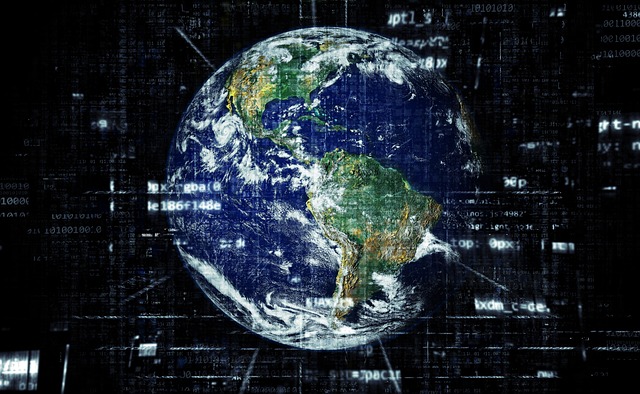The pervasive issue of greenwashing, where companies deceptively market their products or practices as environmentally friendly, is facing an unprecedented surge in scrutiny and regulatory action worldwide. What was once a subtle undercurrent of misleading advertising is now being met with a forceful and coordinated crackdown from governments, consumer protection agencies, and increasingly vigilant consumers. This escalating pressure signals a significant shift towards greater transparency and accountability in environmental claims, forcing businesses to substantiate their green credentials or face substantial repercussions. This article delves into the multifaceted reasons behind this intensifying crackdown, examines recent examples of regulatory action, analyzes the potential impact on both corporations and consumers, and considers the future trajectory of this crucial movement towards genuine environmental responsibility.
For years, many companies have capitalized on the growing environmental consciousness of consumers by employing marketing strategies that portray an image of sustainability, often without substantial evidence or meaningful action. This practice, known as greenwashing, takes various forms, from vague and unsubstantiated claims about eco-friendliness to highlighting minor green initiatives while downplaying significant environmental damage. The consequences of unchecked greenwashing are far-reaching. It erodes consumer trust, distorts market competition by unfairly favoring companies making false claims, and, most importantly, hinders genuine progress towards a sustainable future by creating a false sense of environmental responsibility.
Several converging factors are fueling the current crackdown on greenwashing. Firstly, there is a heightened public awareness and concern regarding environmental issues, particularly climate change, pollution, and biodiversity loss. Consumers are becoming more informed and demanding greater transparency from the brands they support. This increased scrutiny makes it harder for companies to get away with unsubstantiated green claims. Social media platforms have also played a crucial role in amplifying consumer voices and quickly exposing instances of perceived greenwashing, leading to reputational damage and public backlash.
Secondly, regulatory bodies are increasingly recognizing the detrimental effects of greenwashing and are taking more proactive steps to combat it. Governments around the world are strengthening environmental regulations and consumer protection laws to address misleading environmental claims. This includes developing clearer guidelines for environmental labeling, increasing monitoring and enforcement activities, and imposing stricter penalties for companies found guilty of greenwashing. The European Union, for instance, has been at the forefront of this movement with initiatives like the Green Claims Directive, which aims to ensure that environmental claims are substantiated and communicated clearly. Similarly, authorities in countries like the United States, the United Kingdom, and Australia are stepping up their efforts to investigate and penalize companies engaging in deceptive green marketing.
Recent examples of this intensifying crackdown are numerous and span various industries. In the automotive sector, several manufacturers have faced scrutiny over claims related to electric vehicle emissions and the sustainability of their manufacturing processes. The fast fashion industry, often criticized for its environmental impact, is also under increasing pressure to substantiate claims about sustainable materials and ethical production. Food and beverage companies are being challenged on claims related to organic sourcing and reduced packaging. Even financial institutions are facing scrutiny over “green bonds” and other financial products marketed as environmentally friendly, with regulators demanding greater transparency in how these investments contribute to environmental goals.
The consequences for companies found guilty of greenwashing can be significant. Beyond the immediate reputational damage and potential loss of customer trust, businesses face the risk of substantial fines, legal action, and mandatory corrective advertising. The long-term impact can be even more damaging, potentially eroding brand loyalty and making it harder to attract environmentally conscious consumers in the future. This crackdown is therefore forcing companies to move beyond superficial marketing and invest in genuine sustainability initiatives across their operations, from sourcing raw materials to manufacturing processes and product lifecycle management.
For consumers, this intensified scrutiny offers a greater degree of confidence in environmental claims. As regulatory bodies and consumer advocacy groups work to ensure transparency and accountability, consumers will be better equipped to make informed purchasing decisions based on genuine environmental merit rather than misleading marketing. This can drive demand for truly sustainable products and services, further incentivizing businesses to adopt more environmentally responsible practices. However, it is also crucial for consumers to remain vigilant and critically evaluate environmental claims, looking for independent certifications and transparent data rather than relying solely on marketing slogans.
Looking ahead, the crackdown on greenwashing is likely to become even more pronounced. Advancements in data analytics and artificial intelligence will enable more sophisticated monitoring of environmental claims and the identification of potentially misleading practices. Increased international cooperation between regulatory bodies will facilitate a more coordinated global effort to combat greenwashing. Furthermore, the growing influence of environmental, social, and governance (ESG) investing will put further pressure on companies to demonstrate genuine environmental performance, as investors increasingly prioritize sustainability factors in their decision-making.
In conclusion, the intensifying crackdown on greenwashing represents a crucial turning point in the pursuit of environmental sustainability. Driven by heightened public awareness, stricter regulations, and a growing demand for transparency, this movement is forcing companies to move beyond superficial green marketing and embrace genuine environmental responsibility. While challenges remain in ensuring consistent enforcement and preventing new forms of greenwashing, the current trajectory suggests a future where environmental claims are subject to greater scrutiny, ultimately fostering a more sustainable and trustworthy marketplace for both businesses and consumers.
